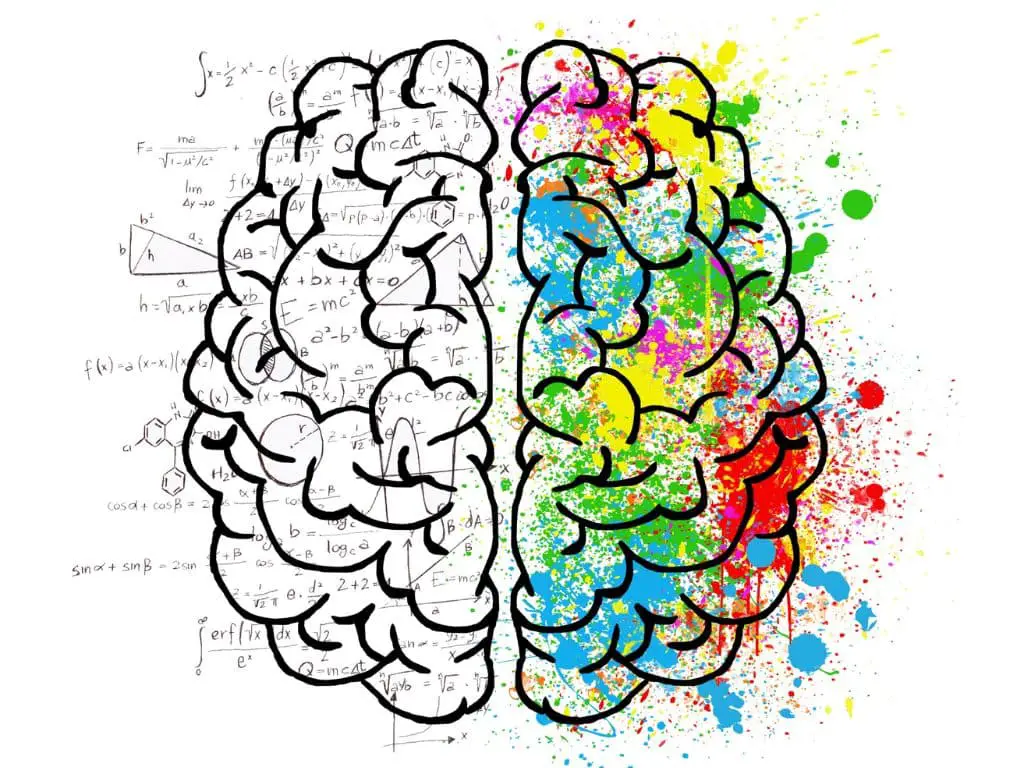Who Is Most Associated With Psychosocial Theory?
Erik Erikson, a German-American developmental psychologist and psychoanalyst, is most associated with the Psychosocial Theory. Erik Erikson expanded on Sigmund Freud’s psychosexual stages, proposing a lifespan model of development that encompasses eight stages from infancy to old age. Each stage is characterized by a psychosocial crisis that needs to be resolved for the individual to develop a healthy adult personality.

Who Is Erik Erikson?
Erik Erikson (1902-1994) was a prominent developmental psychologist and psychoanalyst known for his theory on psychosocial development of human beings. He was born in Frankfurt, Germany and later became an American citizen in the 1930s. Erikson’s theory is one of the most recognized theories of personality development and has greatly influenced the field of developmental psychology.
Unlike Sigmund Freud’s theory which focuses on psychosexual stages, Erikson’s theory centers on psychosocial development and outlines eight stages from infancy to adulthood. Each stage presents a conflict or crisis that serves as a turning point in a person’s development. Erikson believed that successful resolution of these conflicts, which are primarily social in nature, is essential for the development of a healthy personality and sense of self.
Erikson’s work was heavily influenced by his experiences and observations, and his theory was unique in that it extended across the entire lifespan, including old age, a period often overlooked in psychological theories. Despite some criticisms, his psychosocial theory remains a cornerstone in understanding human development and has been instrumental in fields such as psychology, sociology, and education.
What Is Erikson’s Psychosocial Theory?
Erikson’s stages of development include: Trust vs. Mistrust (infancy), Autonomy vs. Shame and Doubt (toddlerhood), Initiative vs. Guilt (preschool years), Industry vs. Inferiority (school age), Identity vs. Confusion (teenage years), Intimacy vs. Isolation (young adulthood), Generativity vs. Stagnation (middle adulthood), and Integrity vs. Despair (late adulthood).
Trust vs. Mistrust
Trust vs. Mistrust is the first stage of Erik Erikson’s theory of psychosocial development, which happens between birth and approximately 18 months of age. In this stage, infants depend on their caregivers for their basic needs and the consistency and quality of this care forms the basis of their trust or mistrust in the world. Successfully navigating this stage results in the child developing a sense of trust and safety, while failure could lead to a perception of the world as inconsistent and unpredictable.
Autonomy vs. Shame and Doubt
Autonomy vs. Shame and Doubt is the second stage of Erikson’s theory of psychosocial development, which typically occurs during early childhood, between 18 months to three years. This stage is centered on children developing a greater sense of personal control and independence, often marked by milestones such as toilet training, food choices, and clothing selection. Successful resolution of this stage results in a sense of autonomy and will; however, failure can lead to feelings of shame and doubt, impacting the child’s sense of personal control and adequacy.
Initiative vs. Guilt
Initiative vs. Guilt is the third stage in Erik Erikson’s theory of psychosocial development, which typically occurs during the preschool years. In this stage, children begin to assert their power and control over the world through directing play and other social interactions. Success in this stage leads to a sense of purpose, while failure can result in feelings of guilt and a lack of initiative.
Industry vs. Inferiority
Industry vs. Inferiority is the fourth stage of Erik Erikson’s theory of psychosocial development, which occurs during the early school years (approximately ages 5 to 11). In this stage, children strive to master new skills and derive a sense of self-worth and competence through social interactions and accomplishments, leading to a sense of industry. However, failure to develop these competencies can result in feelings of inferiority, inadequacy, and low self-esteem.
Identity vs. Role Confusion
Identity vs. Role Confusion is the fifth stage of Erikson’s psychosocial theory, occurring during adolescence, where individuals explore their independence and develop a sense of self. This stage is vital for developing a personal identity, influenced by experiences and social interactions, which will guide behavior and development throughout life. Failure to successfully navigate this stage can result in a weak sense of self and role confusion, while success leads to a strong sense of self and the ability to remain true to oneself.
Intimacy vs. Isolation
Intimacy vs. Isolation is the sixth stage in Erikson’s Psychosocial Theory, typically occurring in young adulthood, from ages 18 to 40 years. During this stage, individuals are exploring personal relationships and need to form intimate, loving connections with other people to achieve success, leading to strong relationships, while failure results in loneliness and isolation. Erikson believed that a strong sense of personal identity, achieved in the previous stage, was vital for developing such intimate relationships, and successful resolution of this stage results in the virtue known as love.
Generativity vs. Stagnation
Generativity vs. Stagnation is the seventh stage of Erikson’s Psychosocial Theory that occurs during middle adulthood, typically from age 40 to 65. This stage is characterized by adults’ need to contribute to future generations through nurturing and guidance, often by having children or making a positive impact on others, with success leading to feelings of accomplishment. Failure to achieve this can lead to feelings of stagnation or unproductivity, resulting in a lack of engagement with the world around them.
Ego Integrity vs. Despair
Ego Integrity vs. Despair is the eighth and final stage of Erikson’s Psychosocial Theory, which typically occurs during old age. In this stage, individuals reflect on their lives and either feel a sense of accomplishment and integrity, or regret and despair. Successfully navigating this stage leads to wisdom and the ability to face the end of life with a sense of peace, while failure results in regret, bitterness, and fear of mortality.
How Is Erikson’s Theory Applied in Psychology Today?
Erik Erikson’s psychosocial developmental theory is still widely applied in psychology today, particularly in the fields of developmental psychology, counseling, and education. The theory emphasizes the importance of social relationships and experiences across the lifespan in shaping an individual’s personality and behavior.
In developmental psychology, Erikson’s stages highlight the key conflicts and challenges that individuals face at different stages of their life, providing a framework for understanding the complexities of human growth. For example, educators and childcare professionals may use the insights from Erikson’s theory to better address the needs of children and adolescents at various developmental stages.
In counseling and therapy, Erikson’s theory can be used as a guide to understand the root causes of an individual’s current issues based on the challenges they faced during different stages of their development. For instance, trust issues in adulthood may be traced back to the first stage of development where the primary conflict is trust versus mistrust.
Furthermore, the virtues that Erikson describes at each psychosocial stage provide a basis for goal setting in therapeutic contexts. For example, if an individual is struggling with feelings of isolation (Stage 6: Intimacy vs. Isolation), the goal of therapy might be to help them develop the virtue of love and form meaningful intimate relationships.
However, contemporary applications of Erikson’s theory also consider its limitations and areas for improvement. For instance, some psychologists argue for the inclusion of justice as a virtue in adolescent development (Stage 5: Identity vs. Identity Confusion), suggesting that a commitment to fairness and social harmony should precede the establishment of a personal ideology or fidelity.
While Erikson’s theory has been critiqued for its lack of attention to certain virtues and principles, it continues to be a key reference in understanding human development and behavior in contemporary psychology.
Frequently Asked Questions
-
What is the last stage of Erikson’s psychosocial development theory for adults over 65?
Integrity vs. disillusionment is the final stage of Erikson’s psychosocial theories of development. This stage starts at age 65 and lasts for the rest of one’s life.
-
What does psychosocial mean?
Psychosocial 1: A combination of psychological and social factors psychosocial adjustment in marital relationships. 2. Associated social conditions with mental health psychosocial medicine.
-
What is psychosocial support in social work?
Psycho Social provides counselling, consultation and crisis intervention to support the mental and emotional wellbeing of the community. The confidentiality of all cases is maintained to the highest standards.
-
What is Erikson’s Stage 7?
The seventh stage in Erik Erikson’s theory about psychosocial development is stagnation. This stage occurs between the ages of 45 and 65.
-
What are psychosocial qualities?
Definition. Definition. Psychosocial characteristics are a way to define the influence of social factors on a person’s mental and emotional health.
-
Who is most associated with psychosocial theory?
Psychosocial theory describes changes in self-understanding and social relationships. It also explains one’s relation to society throughout life, from childhood through adulthood. Erik Erikson was the main theorist associated with psychosocial theory’s development.
-
What is role confusion?
Role confusion is when an individual doesn’t know what to do or where they fit in society.
-
What age is industry vs inferiority?
Erikson’s fourth stage, which is industry vs. infidelity, typically takes place between 7 and 13. Competency is developed when a child can successfully complete this stage. As we grow in our lives, competency becomes an important part of our confidence and plays a significant role in the next phase of identity.
-
What is psychosocial development examples?
Psychosocial development is not just about children’s behavior, but their social cognition. They learn to see the world from others’ perspectives and understand how their behavior affects other people.
-
What age is intimacy vs isolation?
Erik Erikson’s sixth stage, intimacy versus isolation, is part of his theory of psychosocial developmental. It occurs after the fifth stage. The stage occurs between the ages 19-40.
-
What is the psychological crisis when you Cannot develop trust?
Erikson suggested that babies develop basic trust after they successfully resolve the first psychosocial crises (or opportunities) in their lives, the Conflict between Trust and Mistrust. Trust is developed in a baby who has been raised by parents who are consistent in meeting its needs.
-
What are the 7 stages of development?
A person can go through seven phases in his/her life. Infancy, childhood, childhood and middle childhood are the seven stages.
-
Why is Erikson’s theory the best?
Erikson’s theory on psychosocial development is important. The theory of psychosocial development is important because it offers a comprehensive view of human development across the lifespan. The importance of the social relationship on development is also stressed.
-
What is an example of intimacy vs isolation?
Your best friend from high school might become part of your close circle. Sometimes they might even become friends. These distinctions can be made during this time. Separation, however, refers to a person trying to avoid intimate relationships.
-
Which age group is considered to be the stage of identity vs role confusion?
Definition. Erik Erikson explains Identity versus Role Confusion as the fifth stage of psychosocial growth that takes place between 12 and 19 years. This stage is where adolescents must develop an identity and sense of self.






